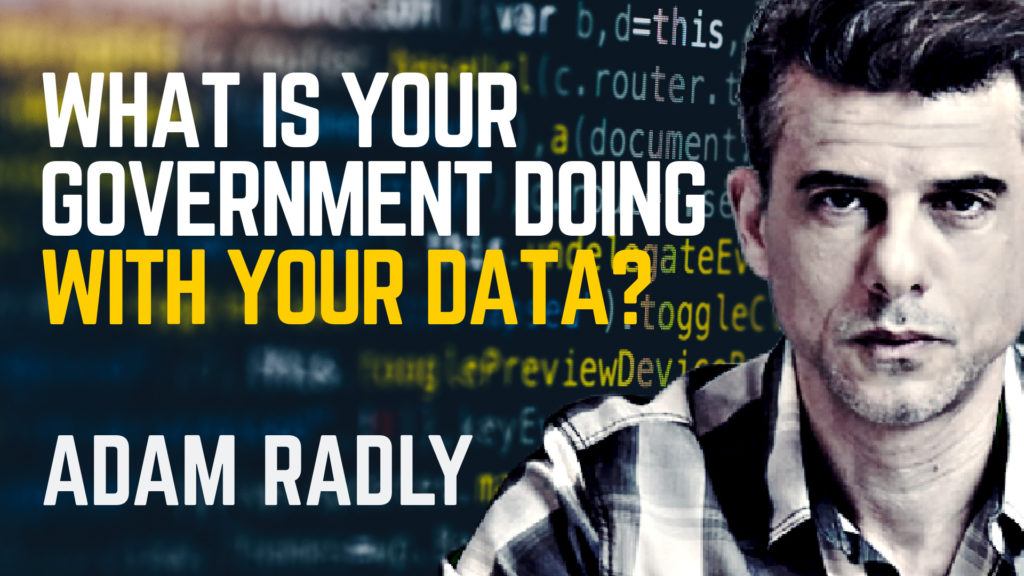Data Privacy. What Is The Government Doing With Your Data?
The reason we don’t want the government tracking us is that we don’t trust them with our private data.
Most governments are tracking you without your knowledge. This makes us trust the government even less. If our trust in government continues to deteriorate, it will eventually lead to the destruction of our societies as we know it.
The government needs to increase transparency or they need to stop tracking. It has to be one or the other.
The decisions made by your government impact you and other people around the world. Are they making the right decisions and, if you could vote on these decisions, how would you vote?
In the meantime, if you’re new to my content, One Direct Democracy is a movement for upgrading the global democratic system by taking the power away from politicians and putting it in the hands of the people by using Direct Democracy.
It will also eliminate left and right politics.
I’ve created the technology and a plan for how to make it work. If you want to learn more about it, check out the links in the description.
For each article, I’ll pick an important issue, give you an outline of the problem, suggest possible solutions then you can decide how you would vote.
In this case, we’ll be talking about data privacy.
If you’re just looking for another talking head that has no interest in actually doing anything, you’re in the wrong place. If you want to be part of the solution, let’s get into it.
Okay, so we know that we’re tracked. Some of the tracking is done by businesses that want to use the data to advertise to us. That’s annoying but most just accept it.
But some of the tracking is done by the government. That’s not something that’s acceptable and anything that government does with your personal data should be transparent.
According to this article from Yahoo Finance called “Bipartisan bill would expand US data collection transparency requirements“:
“A bipartisan group of legislators today introduced bills in the House and Senate that would expand transparency requirements when it comes to government surveillance of US citizens, adding email, text, location and cloud data to the existing reporting framework.”
So, how is this different from what happens now?
“Currently, the US government is required to alert Americans who have been targeted by wiretaps and bank record subpoenas, but this doesn’t apply to digital or cloud data.”
So the rules only apply to wiretaps and banks records. This bill wants to add adding email, text, location
“The Government Surveillance Transparency Act aims to adjust the parameters of this rule, expanding it to cover more common, modern forms of digital communication and data storage.”
The people behind the bill…”argue that hundreds of thousands of criminal surveillance orders from US authorities go unreported each year, keeping Americans in the dark about the broad scope of government monitoring programs.”
If the government is tracking you, you obviously need to know about it.
“The bill also addresses the government’s use of gag orders to halt technology companies from informing their customers of surveillance campaigns.”
What does a gag order mean? It means that the tech company has been told to provide private information about you to the government but they are not allowed to let you know about it.
“While many tech companies have tried voluntarily reporting government subpoenas and data requests to their customers, authorities have used gag orders to keep these campaigns secret, according to the legislators.”
Okay, you know how law enforcement will react. They’ll say that this makes it more difficult to do their job. This is what one of the sponsors of the bill had to say about this:
“When the government obtains someone’s emails or other digital information, users have a right to know,” Wyden said in a press release. “Our bill ensures that no investigation will be compromised, but makes sure the government can’t hide surveillance forever by misusing sealing and gag orders to prevent the American people from understanding the enormous scale of government surveillance, as well as ensuring that the targets eventually learn their personal information has been searched.”
Okay, if this law was passed how can we access the information?
“Alongside reforms to notification requirements and the gag-order process, the legislation would force authorities to publish online general information about every surveillance order they complete.”
“It also would require law enforcement to notify the courts if they search the wrong person, house, or device in the scope of an investigation, and also if a company shares unauthorized information.”
So, under current laws, the government can search the wrong person and invade your privacy and still not be required to let you know that it happened.
So that’s the summary. Should there be more transparency from the government about they track you and how handle your private data?
And, if you could vote on the bill directly, would you vote in favor of it or against it?
Let me know what you think in the comments.
The reality is that we have reached a point in time in our evolution where Representative Democracy no longer serves the will of the people and technology can solve the problems that made Direct Democracy impractical.
That’s why I created One Direct Democracy. It’s a movement for upgrading the global democratic system by taking the power away from politicians and putting it in the hands of the people by using Direct Democracy.
I’ve created the technology and a plan for how to make this work.
We don’t have to convince any politicians or powerful people to do anything to make this happen. We have the power to do it on our own. We just have to decide to do it.
Direct Democracy is the purest form of democracy. Representative Democracy is an outdated blunt instrument.
Check out the listing for this topic: How Can The Government Surveillance Transparency Act Be Improved?



